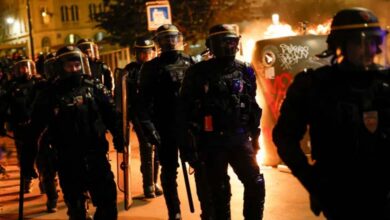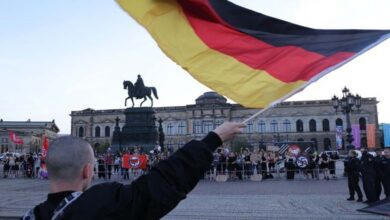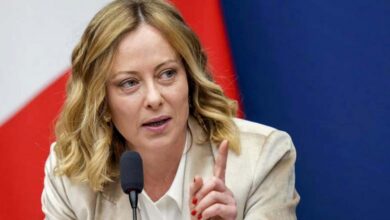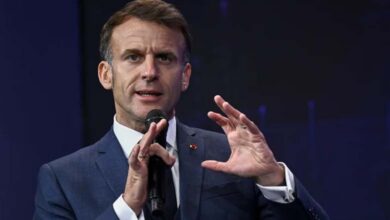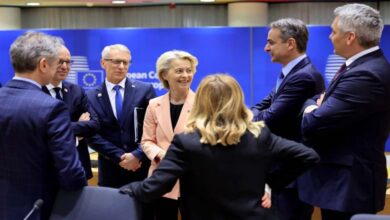Macron’s stance on the Gaza war fuels divisions within France
Ten ambassadors in countries in the Middle East and North Africa sign a memorandum condemning Macron's policy for deviating from the balanced French approach towards Israelis and Palestinians.
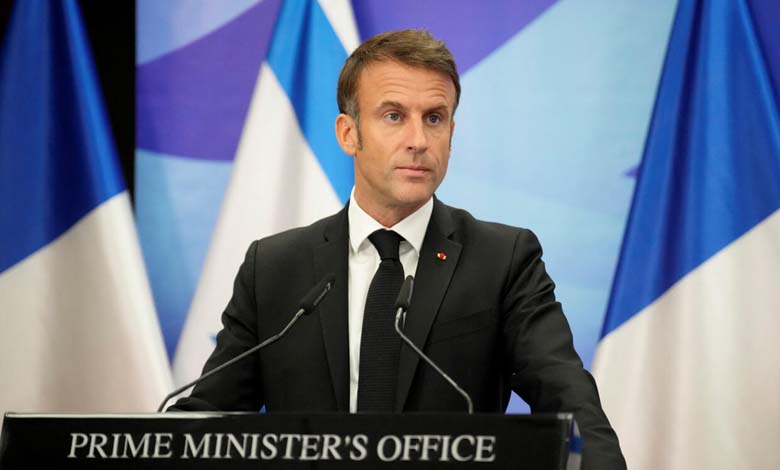
French President Emmanuel Macron‘s pro-Israel stance, especially at the beginning of the Israeli army’s war on Gaza, faces rapid criticism from French officials and ambassadors in several Arab capitals.
In an article published in the French newspaper Le Figaro by the French writer Georges Malbrunot commenting on a collective memorandum bearing the signatures of several French ambassadors in Arab countries, expressing their regret for Paris’s position in the Israeli-Palestinian conflict. The writer emphasizes that the image of French policy is shaken in the Arab world.
The ambassadors who signed the memorandum confirmed that “Paris’s pro-Israel stance at the beginning of the crisis is not understood in the Middle East because it contradicts our traditional balanced stance towards Israelis and Palestinians.”
The ambassadors, mostly based in capitals in North Africa and the Middle East, described their stance as unique in the history of French diplomacy. The memorandum was sent to the Elysée Palace amid expectations of a gradual change in Paris’s stance on the war, with a large number of Palestinian civilians falling in the Gaza Strip.
According to the French writer, 10 ambassadors in Arab countries signed the memorandum, which they sent to the French Foreign Ministry and the presidential palace.
Macron expressed unconditional support for Israel’s right to defend itself after Hamas‘s attack on October 7th, calling for the formation of an international alliance against Hamas, similar to the alliance against ISIS.
However, Macron‘s stance has changed slightly with the high number of civilian casualties among Palestinians, the targeting of hospitals, and the killing of displaced people, as confirmed by international humanitarian organizations. Macron called for an end to targeting civilians and then demanded an urgent humanitarian ceasefire before calling for an international humanitarian conference to aid the Gaza population.
One diplomat commented on the memorandum, saying, “It cannot be described as opposing, but the ambassadors confirmed that their pro-Israel stance at the beginning of the crisis is not understood in the Middle East because it contradicts their traditional balanced stance towards Israelis and Palestinians”.
Diplomats speak of Paris losing its credibility in the Middle East and North Africa, adding to the difficulties facing Paris’s image in certain regions worldwide, especially in the Sahel and desert region, where it has been expelled from several countries.
One diplomat said, “The memorandum confirms France’s loss of credibility and influence and paints a bad picture of our country in the Arab world, then hints diplomatically that the reason for all this is the positions taken by the President”.
In contrast, diplomats emphasize that the elected political authorities, as the President and the government, ultimately decide France‘s foreign policy.
The article discusses the accusations and difficulties faced by ambassadors in their work. A resident diplomat in the Middle East, supportive of the memorandum, said, “We are sometimes accused of complicity in genocide”.
Several French ambassadors state that they are no longer able to access decision-making circles in the countries where they work due to the statements of French politicians regarding the Gaza war.
Reports indicate that one ambassador received death threats from extremists angry about France’s unequivocal support for Israel.



